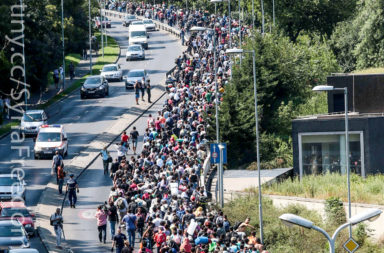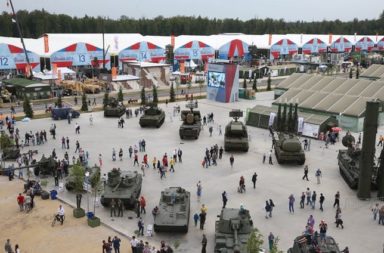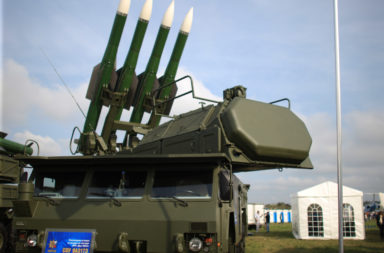By the The Foreign Policy Initiative, Washington D.C.
Before a joint session of the French Congress at Versailles, President François Hollande announced a 90-day state of emergency, proposed substantial changes to his country’s constitution, and announced the dispatch of the aircraft carrier Charles de Gaulle to the eastern Mediterranean, where it would triple the French capacity to conduct air strikes against the Islamic State, also known as ISIS, ISIL, or Daesh.
In contrast, at a press conference during the G20 summit in Turkey, President Obama declared, “We have the right strategy and we’re going to see it through.” Once again, Obama has shown that he does not understand the severity of threat posed by ISIS, nor can he recognize the failure of his strategy to defeat the terrorist organization.
Shortly before the attacks in Paris, President Obama told ABC News that “our goal has been first to contain” ISIS and “we have contained them.” Obama justified his conclusion by explaining, “They have not gained ground in Iraq” nor have they made progress in Syria. His statement is inaccurate and misses the point. In May, ISIS captured the strategic city of Ramadi in Iraq. Maps compiled by the Institute for the Study of War show that the ISIS zone of control in Syria is expanding southwest towards the country’s population centers, despite the gains made by Kurdish forces in the north.
More importantly, the global expansion of ISIS, far beyond the borders of Iraq and Syria, demonstrates the deficiency of the assessment that it has been contained. The Islamic State now has branches in Libya, Sinai, Yemen, Afghanistan, and elsewhere. Islamic State operatives have recently carried out mass casualty attacks in Turkey and Lebanon. In addition, the Islamic State has claimed responsibility for the bomb that destroyed a Russian airliner departing from Cairo, killing all 224 passengers aboard. After spending a year with ISIS in Syria, Mehdi Nemmouche gunned down four visitors at the Jewish Museum in Brussels in 2014. Ayoub el-Khazzani, who attempted to slaughter the passengers on a Paris-bound train, may also have spent time in Syria.
Friday’s attacks in Paris demonstrate that the ISIS threat has gone global. The man suspected of planning the attacks is a Belgian citizen who fought with ISIS in Syria. President Hollande said the attacks were “organized, and planned from outside, with help from inside.” Yesterday, ISIS released a video threatening to carry out similar attacks on Washington.
Rather than display a new sense of urgency, President Obama has complacently dismissed criticism of his strategy. At his recent press conference in Turkey, he remarked, “in the aftermath of Paris, as I listen to those who suggest something else needs to be done, typically the things they suggest need to be done are things we are already doing.” He added, “The one exception is that there have been a few who suggested that we should put large numbers of U.S. troops on the ground” in Iraq and Syria.
In fact, the White House has ignored or dismissed numerous suggestions of how to prosecute the war against ISIS more effectively without employing a substantial number of ground troops. In light of the growing threat, both Congress and the President’s advisers should encourage him to reconsider the following options:
An Expanded U.S. Mission in Iraq – A bipartisan array of national security experts has called for an expansion of the U.S. training mission so that American advisers can partner with Iraqi forces down to battalion level, rather than remaining at higher headquarters. U.S. troops on the ground can also help to call in airstrikes, increasing their accuracy.
U.S. Leadership for an International Combat Force – Former U.S. Ambassador to Iraq James Jeffrey observes that no assault during the war in Iraq required more than 7,000 to 8,000 troops. France and other European countries could provide at least that many troops, yet Amb. Jeffrey warns, “without U.S. ground forces, none of this will take place.” This force could also incorporate the select few Iraqi units with advanced capabilities.
An Accelerated Air Campaign Against ISIS – While President Obama reports that there have been 8,000 air strikes to date, this impressive sounding number only amounts to about 15 strikes per day since September 2014. According to Frederick and Kimberly Kagan, “Restrictive rules of engagement have prevented U.S. aircraft from attacking many [ISIS] targets in Iraq and Syria.” They recommend that the United States use airpower to force ISIS “to go to ground, to stop maneuvering vehicles, and to stop massing forces.”
No-Fly Zones Along Syria’s Borders with Turkey and Jordan – There is growing bipartisan support for a no-fly zone. Christopher Harmer of the Institute for the Study of War showed earlier this month how one could be established with a comparatively low level of effort. At first, the no-fly zones would protect civilians from the Assad regime’s air force. If defensible, these areas could provide a humanitarian enclave for displaced Syrians and give moderate opposition forces a place to organize and train in preparation for taking on ISIS and the Assad regime.
Increased Support for Indigenous Forces –The Obama administration tried and failed to create a viable Arab opposition force in Syria, yet its efforts were half-hearted at best. Now it should be clear that creating such a force is imperative. The United States should also invest more in developing local Sunni forces in Iraq.
A Response to the Refugee Crisis – Managing the refugee crisis will require tremendous organization and resources both to vet refugees for potential ISIS infiltrators and support the millions who are fleeing the chaos in Syria, Iraq, and the larger region. If the United States does not lead in this regard, this humanitarian disaster could further threaten the stability of regional partners like Jordan and allow ISIS to recruit within among refugees.
America’s efforts against ISIS must extend beyond Iraq and Syria. For instance, the organization’s growing presence in Afghanistan and North Africa means that the United States should reconsider its military posture in those regions as well, and view ISIS as a truly global threat. However, Iraq and Syria remain the organization’s heartland, and strategically defeating them there will have enormous ramifications for the group’s global strategy.
CIA Director John Brennan said Monday, “I certainly would not consider [Paris] a one-off event.” He added, “It’s clear to me that ISIL has an external agenda, that they are determined to carry out these types of attacks. I would anticipate that this is not the only operation that ISIL has in the pipeline.” This threat to U.S. and international security is both daunting and unacceptable. The United States should commit the forces necessary to defeat and destroy ISIS and end the threat it poses to the world.




